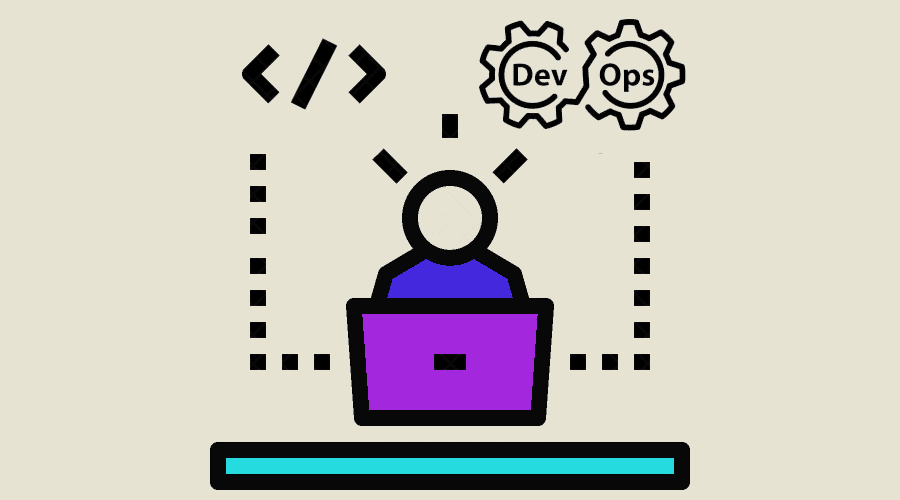DevOps offers many advantages for software development and operation. Discover the main strengths of this methodology and the benefits of DevOps.
Worldwide, almost 75% of companies have adopted DevOps, according to a study by RedGate Software.
On the strength of this success, the market for DevOps tools has reached a value of $7 billion by 2022, according to Research and Markets.
So how do we explain this international popularity? It’s very simple: this modern approach to software development brings many benefits. Here are just a few of them.
Benefits of DevOps 1: Eliminating silos
Traditionally, software development and operations teams are separated. Developers write their code and build the application components, without interference from operators.
This creates information silos within the development and delivery pipeline. The heart of DevOps is to put an end to this separation, by unifying the two teams to achieve the same goal.
Benefits of DevOps 2: Accelerated software delivery
One of the obvious benefits of DevOps for businesses is the overall increase in agility and efficiency it confers.
This agility is a valuable competitive advantage in the modern software world. A few days’ delay in deploying an update can determine the success or failure of an application.
By removing obstacles such as internal conflicts or malfunctions in the feedback loop, the DevOps culture accelerates the speed of deployment and relaxation.
Automation tools can also be used to optimize processes to increase productivity and relaxation frequency.
As a result, new features can be deployed very quickly to meet user needs, and bugs can be corrected as soon as they are detected.

Benefits of DevOps 3: Continuous integration and deployment
Continuous integration is a central DevOps practice. It involves the continuous integration and testing of changes made to an application’s source code.
Each developer adds his or her code commit to the current development branch on the version control system. The code is then automatically compiled, tested and deployed in a test environment.
If it passes the tests, it is considered ready for integration into the main application.
This enables errors and code conflicts to be detected and corrected quickly, before it’s too late. New features can also be deployed more quickly.
Similarly, continuous delivery involves automating the process of putting an application into production. It provides an infrastructure and automated deployment environment for code in production.
The aim is to eliminate bottlenecks in the deployment process, and to reduce the risks associated with putting a new version of the application into production, thanks to testing tools.
These CI/CD practices help make the DevOps pipeline smoother, while improving software quality and security.
Benefits of DevOps 4: Increased team motivation
Adopting a DevOps culture creates a more pleasant working environment by fostering transparency, collaboration and respect. Within such an organization, team morale remains higher.
What’s more, this approach also avoids unexpected workloads, such as the urgent need to fix a bug. Proactive resolution of code problems avoids these inconveniences, which can have a negative impact on employee morale.
Benefits of DevOps 5: A better user experience
The whole DevOps model is based on feedback from teams, customers, users and all stakeholders.
This feedback loop enables organizations to benefit from a comprehensive view of how users feel about their product as it is being built.
Throughout the software lifecycle, the DevOps team is in direct contact with its target audience. In the event of a complaint, claim or problem report, an update can be deployed very quickly to address it.
In this way, the application matches the audience’s expectations and adapts immediately to changing demand. This increases customer satisfaction.
Benefits of DevOps 6: Time freed up for innovation
By harnessing individual expertise, research data and process automation, DevOps stimulates innovation.
What’s more, rapid software delivery enables an organization to learn early from its mistakes and make the changes needed to achieve the original goals.
This allows developers to experiment more freely with new functionalities and components for the product architecture.

Benefits of DevOps 7: Enhanced safety
At a time when cybercrime is skyrocketing, a properly implemented DevOps strategy can strengthen the security of a company’s infrastructure and its products.
DevSecOps is an approach that incorporates security into the entire DevOps cycle. It increases the speed of incident recovery through automated compliance policies, granular controls and incremental improvements.
What’s more, it enables potential vulnerabilities to be detected at the earliest stages of development and corrected immediately.
Benefits of DevOps 8: Cost reduction
At first glance, implementing DevOps may seem costly because of the many processes to automate and tools to adopt.
However, in reality, DevOps helps companies reduce costs. The stability and availability provided by this method eliminate downtime, thanks in particular to automated testing and performance monitoring.
Software release costs are also reduced by automating the delivery pipeline.
In addition, operational expenses such as tool purchases, specialist recruitment and the deployment of stable versions of applications are reduced thanks to cloud technologies.
Conclusion: DevOps, a philosophy of continuous improvement serving the whole enterprise
Thanks to the automation of repetitive tasks, collaboration between teams and improved process visibility, the benefits of DevOps are numerous.
Despite the challenges associated with its implementation, it is an ideal method for accelerating software deployment while enhancing quality and security.
User satisfaction is maximized.
Companies deciding to adopt DevOps are best equipped to meet fluctuating customer needs and remain competitive in the ever-changing marketplace.
More than just a software development method, DevOps is a philosophy that promotes continuous improvement and cooperation throughout the software lifecycle…
To master DevOps best practices, you can choose DevU. Our training program, created in partnership with AWS, gives you all the skills you need to become a DevOps engineer.
You’ll be able to earn a state-recognized diploma, and validate the French Ministry of Labor’s Professional Title: “DevOps System Administrator”.
In addition, you will receive a DevOps Engineer certification from Formation Continue Panthéon Sorbonne and an AWS Solutions Architect cloud certification.
This training is entirely distance learning via the web, and our organization is eligible for funding options.










